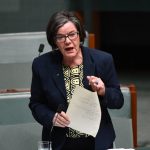Australia in 2020 – for richer or poorer?
Ayn Rand, John Maynard Keynes or Mondragon? Fergus Neilson asks, what is Australia’s most promising route to a vibrant future?
Four friends meet in a Martin Place bar for drinks after work one summer evening early in 2012. Conversation swings from despair (prospects for tomorrow’s market opening) to elation (another coal mine sold at record prices to Indian investors); from boasting about recent bonuses to roasting the scattered remnants of a largely ignored protest outside the Reserve Bank; and, inevitably, to concerns about the future prospects of their growing children.
All four are in robust agreement with positive views expressed last year in The Economist: “That Australia is successful is not in doubt. It has a prosperous economy, a harmonious and egalitarian society, an ability to accommodate immigrants, an excellent civil service, an independent central bank, a good balance of personal freedom and limited government, sensible pension arrangements, sporting prowess and a fine cuisine. With so much already in the bag, today’s politicians have an unusual opportunity to make life even better for their compatriots, born and unborn”.
Scenarios for the near future
However, discord breaks out between our four friends when it comes to deciding on the best way forward for Australia and also about who bears responsibility for leading that way forward. Four quite different scenarios emerge.
Correspondents to The Futures Project are asked to consider their level of personal concern with or support for each of the scenarios. Where would you like to see Australia travelling over the next five to ten years? How much government? How much business autonomy? How much citizen input? Score each scenario from 1 (least preferred) to 5 (best outcome)
SCENARIO 1. Capitalism red in tooth and claw – Our first businessman is an advisor to the mining industry. His preferred future for Australia is all about the ‘Big Pit’. A self-confident, affluent (although two-speed) country relishing a global role as the politically stable raw material provider of choice to the booming economies of China and India; specialising in what we do best: “dig and deliver”. Small government, executive rewards that attract and retain the best from a global market, an erosion of union power and significantly lower taxes. “Lower all taxes and shred the welfare budget … there should be no entitlements, just earnings … when business wins, everyone wins”.
SCENARIO 2. Government with a firm grip on the tiller – “Hold the phone”, cries our second businessman, recently returned from five years commuting between Singapore and Shanghai. “Someone has to pay for education, and subways, and decent roads and hospitals, and land reclamation … someone has to hose down all the pokie lobbyists and property developers”. Our debater argues there is no way that Singapore or China could have come as far as they have done without concentrated wisdom, power and leadership at the heart of government. Reverting cautiously to vague memories of his degree in Economics at UNSW he disclaims: “don’t forget that Adam Smith did not extend his criticisms of mercantilism to an attack on government and the role of law in general”. He points to the record of early stage capitalism in late 19th century America and 21st century Russia to illustrate the damage done by business unrestrained by responsible government and law.
SCENARIO 3. A civil society is a balanced society – Our third friend was once an academic until her skills with arcane mathematics swept her up into the rewards of hedge funds management (but the guilt lingers). “What about the Gini coefficient?” “The what?” “The ranking of countries by equality of income, the higher the figure the greater the gap between rich and poor: Sweden and Norway are at 0.24, Australia at 0.30 (but quickly getting less equal), the United States at 0.45 and South Africa at 0.65. Where would you rather live? America is teetering on the ragged edge. The Republicans want to reduce taxes from an already low base. Over 60% of personal bankruptcies are as a consequence of failure to pay medical bills. And some character has just walked away from the takeover of the energy company of which he was Chief Exec, not even an owner, with a golden good-bye of $65 million. If that isn’t a recipe for revolution I don’t know what is”.
SCENARIO 4. She’ll be right, Mate! – Our fourth friend is relaxed. She has just spent six months on sabbatical and hasn’t yet returned to her partnership at the law firm. “Guys, I’ve just been around the world: India is turd strewn, caste-ridden and corrupt, the Middle East is turning to Wahhabism, England has ground to a halt and infrastructure in the States was all built in the fifties. It should have been replaced 15 years ago. Minimum.” Settling comfortably into her theme: “I’ll stick with The Economist. Sure our pollies couldn’t tear the skin off a rice pudding; but their hearts are in the right place. I support the Pollution Reduction Charge, I support tax reform, I support excellence in education and I support a reasonable welfare safety net. I support innovation in all areas of the economy. No need for radical change. But it would be good if Canberra would jettison some of their outdated ideology and get a few policy guys who can do more than just advise … NO”.
Open Forum member feedback
Your comments on these four near future scenarios and suggestions for action now will be used to refine The Future Project’s proposed ‘issue & scenarios posting’ on population policy. With that posting to access a wider spectrum of social networks, and reach a global audience for the aggregation of crowd wisdom into public debate of, and policy action on, this crucial issue.
The Futures Project
The Futures Project is focused on a single ambition: directing the wisdom of crowds at encouraging government and business clients to shift their emphasis from hindsight and daily ‘fire fighting’ to the application of insight and foresight in preparing society now for better outcomes in the near future.
Fergus Neilson is Co-Founder of The Futures Project. Fergus brings a wide range of business and life skills gathered from a career in the armed forces, investment banking, the United Nations, McKinsey & Company and private equity investment. Always sceptical of solutions imposed ‘top-down’ and increasingly frustrated by the default position that invariably sees cleaning equipment bought in only after the proverbial has hit the fan. Fergus can be contacted at fergus.neilson@thefuturesproject.com
Fergus Neilson has a wide range of business and life skills gathered from a career in the armed forces, investment banking, the United Nations, McKinsey & Company and private equity investment.













ANI
January 17, 2012 at 8:50 pm
How successful is Australia really? I differ on your view in som
If we had a prosperous economy we would not be selling off Australia, its mines, real estate, industries etc to foreign investors in record numbers and not only in record prices. As for the immigrants they are all accommodated only a fair number of them are in detention pen for an undetermined time?
This is not true. When the medical businesses win and grows to be the largest, global business monsters in the world, then the world’s population lose. Can we trust these guys to research prevention rather than cures? Can we trust them to tell the truth about the real causes of disease? I can say to you that my discovery is that the answer to this question is a big resounding NO! Disease is not what the doctors are saying. And I am not talking hypothetically nor academically.
I am talking from firsthand experience, and repeated experience to perfection! I can not only make my body well these days, I can more than that “stage-manage” my physiology so that I don’t fall sick in the first place. If we have to do one thing that can really make for a successful Australia and indeed lead the world into a better future then it is that we reveal the truth about disease. Stress they say is from daily living. Nay, stress that is pathological and leads to disease arises out of toxic relationships. And not only the kind where the stabbing in the back is hindsight.. but not even seen at all; except of course when we examine the true causes of disease.
I invite you to my blog at https://kyrani99.wordpress.com/ and you’ll be shocked at what hides behind the neatly characterized diseases, that look so cool in their medical boxes! I have a way to go to get to heart disease and cancer but the beginning posts sure point to foul game play! Let’s fix that and do it for all humane people around the world and not only for Australia. Then Australia will truly be great.. the greatest!
Fergus Neilson
January 19, 2012 at 3:51 am
COUNT YOUR BLESSINGS
There is, of course always another perspective. My great great gandfather had eleven children. Six of whom died of tuberculosis. My grandfather died aged 49 of malaria. My father’s sister died aged 16 of meningitis. My wife’s grandfather died aged 43 of peritonitis. Modern medicine would have saved them all. Forty years ago life expectancy in Australia averaged 72. It now averages close on 82. I would argue that the medical profession has done a pretty good job at curbing unnecssary death and impacting positively on ‘lifestyles’ (i.e. pushing the fight against Big Tobacco). I consider myself fortunate to be living in Australia. Rather than (say) Afghanistan where life expectancy barely exceeds 47. Or the Unites Sates where heath care costs consume around 16% of GDP and 60% of personal bankruptcies are, in whole or part, as a consequence of failure to pay medical bills. I say two things (1) life is a dice game in which no one is entitled to a life span of ‘four score and ten’ and (2) as my old fitness trainer, George Daldry, used to say – "count your blessings". Regards and good health, Fergus Neilson.
ANI
January 25, 2012 at 8:24 am
What is at issue is unnecessary disease.
I hope you have NOT visited my blog at wordpress to have made this comment. Of course it is good that people are given a chance at a longer life and to have the opportunity for treatment but that is not the issue I am bringing up. There are seriously malevolent people in our societies right across the world and Australia is no exception. For the medical profession to look to take advantage of this situation rather than shine a spot light on it as it appear is despicable in my book. If people knew the truth about cancer and heart disease and strokes and diabetes and mental disorders they wouldn’t get sick in the first place. All of it is unnecessary disease. To live longer and healthier surely is worth fighting for.
Thank you for your good wishes and my health is excellent regardless of the vicious war against me that has gone on for more than a decade now. And may you enjoy good health too! Ani.